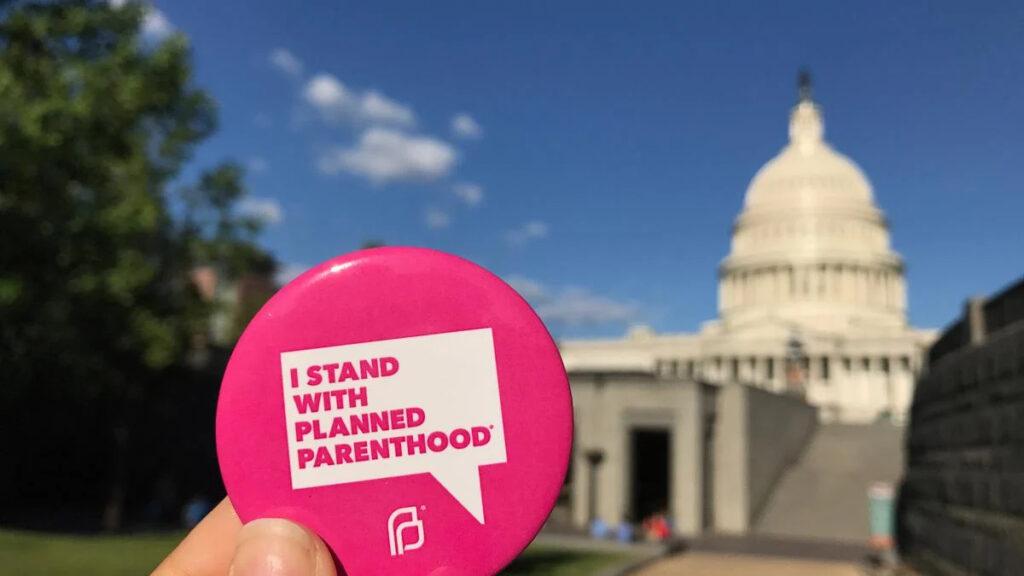A new Planned Parenthood initative will allow residents of Washington, D.C., Maryland and Virginia to access abortion medication and services without leaving their homes.
The plan, announced by Planned Parenthood of Metropolitan Washington, D.C. (PPMW) on Sept. 10, allows patients to receive abortion medication through the mail. PPMW is the second Planned Parenthood branch in the country to provide patients with entirely at-home care and services. The Planned Parenthood League of Massachusetts was the first affiliate to join the nationwide TelAbortion study, which provides patients with access to telehealth appointments to receive abortion medication within the first 10 weeks of pregnancy.
The initiative prioritizes safety and accessibility to expand abortion services for all patients, according to Dr. Serina Floyd, medical director of PPMW.
“PPMW is committed to providing safe, accessible, and culturally sensitive care to all of our patients,” Floyd said in the press release. “With this expansion in medication abortion services, patients are able to connect with a provider in ways that are comfortable and convenient. Medication abortion at home provides the same excellent level of care that Planned Parenthood is known for.”

According to Chloe Kekedjian (COL ’22), president of H*yas For Choice, a pro-abortion rights student group, this new method will improve access to abortions for Georgetown University community members.
“Planned Parenthood’s program to offer at-home abortion medication will make accessing abortion much easier for residents of DC, including Georgetown students,” Kekedjian wrote in an email to The Hoya.
Patients will begin the process by participating in a phone screening and an online meeting with a PPMW patient care provider before either picking up the medication in person or receiving the medication via mail in a discreet package. Afterward, patients must attend another virtual appointment the following week after they have taken the medication. The procedure, meant for early-term abortions, must be completed within the first 10 weeks of pregnancy. Four weeks after the procedure, patients must take an at-home pregnancy test or receive an ultrasound with a blood test to ensure the procedure was successful.
According to Betsy Harned, the vice president of public affairs for PPMW, an at-home abortion option increases access to reproductive healthcare for all individuals.
“COVID has made accessing healthcare, including abortion, more urgent and our providers are primed to deliver this service,” Harned wrote in an email to The Hoya. “The flexibility of at-home abortion is particularly helpful to those who might encounter difficulty coming in-person to an appointment at one of our health centers due to obstacles such as difficulties getting time off of work, child care, or reliable transportation.”
Low-income individuals, young people and marginalized communities face significantly larger barriers to accessing abortion services because of cost, inability to travel and COVID-19 pandemic restrictions, especially in regions where states are limiting abortion rights. Currently, individuals on D.C. Medicaid cannot use their insurance to cover abortions because of congressional legislation that prevents the District from using local funds to pay for abortion services. According to Harned, this Medicaid ban further contributes to unequal access to abortion services among low-income communities.
At-home abortion options are also beneficial to increasing access for the Georgetown community, according to Kekedjian.
“College students are a demographic that may have difficulty accessing abortion due to busy schedules or lack of knowledge,” Kekedjian wrote.
Abortion access has made national headlines in the last month. On Sept. 1, the state of Texas banned abortions past six weeks of pregnancy, sparking backlash across the country. The law also allows citizens to sue abortion providers or any individual who assists with providing an abortion. If not overturned by the Supreme Court, this law could potentially threaten the precedent for legal access to abortion set by Roe v. Wade.
According to Harned, at-home abortions will allow people to continue to access reproductive healthcare amid legal battles regarding abortion.
“Now more than ever before, access to critical, time-sensitive care like abortion depends on where you live. So while abortion is currently more protected in the DMV than in other areas of the country, there is still more work needed to protect and maintain care in our region for all,” Harned wrote.





















Jeniffer • Jul 26, 2022 at 2:58 am
Great blog. Planned parenthood is always better.